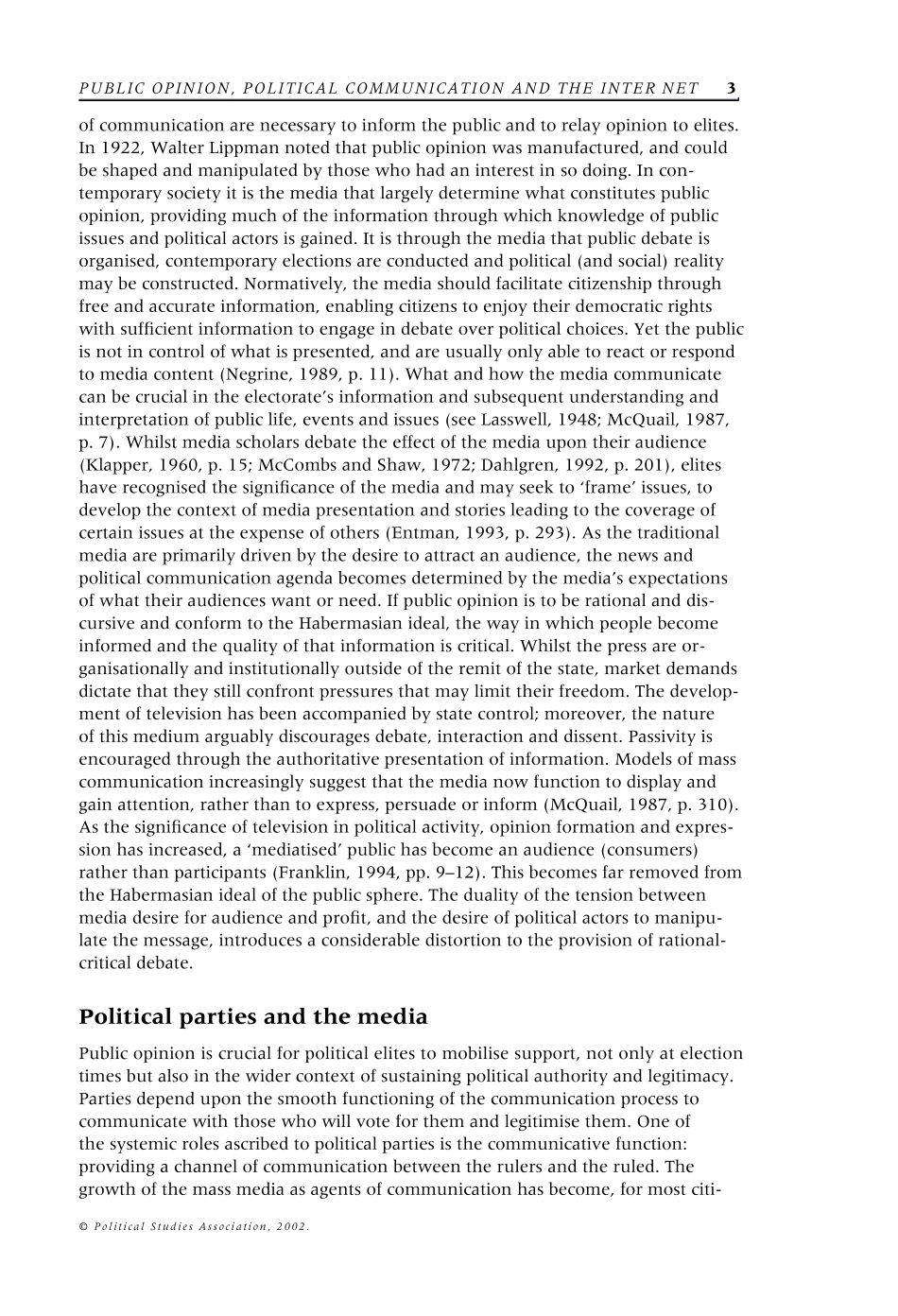© Political Studies Association, 2002.Published by Blackwell Publishers, 108 Cowley Road, Oxford OX4 1JF, UK and 350 Main Street, Malden, MA 02148, USAPu blic Opinion, PoliticalCommu nication and the InternetHeather Savigny1University of BirminghamIn contemporary society public opinion is generally mediated by the mass media, which has cometo encompass the Habermasian ‘public sphere’. This arena is now characterised by the conflictbetween market and democratic principles, by competing interests of politicians and the media.The presentation of information for debate becomes distorted. The opinion of the ‘public’ is nolonger created through deliberation, but is constructed through systems of communication, in conflict with political actors, who seek to retain control of the dissemination of information. Theexpansion of the internet as a new method of communication provides a potential challenge tothe primacy of the traditional media and political parties as formers of public opinion.Introdu ctionPublic opinion is crucial for political actors to maintain their legitimacy and politicalauthority. In contemporary modern liberal democratic society public opinion is generally mediated by the mass media, either through the presentation of opinionpolls, or more generally in the reflection and/or creation of public opinion. JürgenHabermas provides a framework through which to analyse the relationship betweenthe media and public opinion formation. The ideals of Habermas’s notion of publicopinion in the public sphere are premised on the assumption of rational-criticalundistorted debate and universal access. Contemporary mass media encompass thepublic sphere, but this arena is characterised by the conflict between market anddemocratic ...


